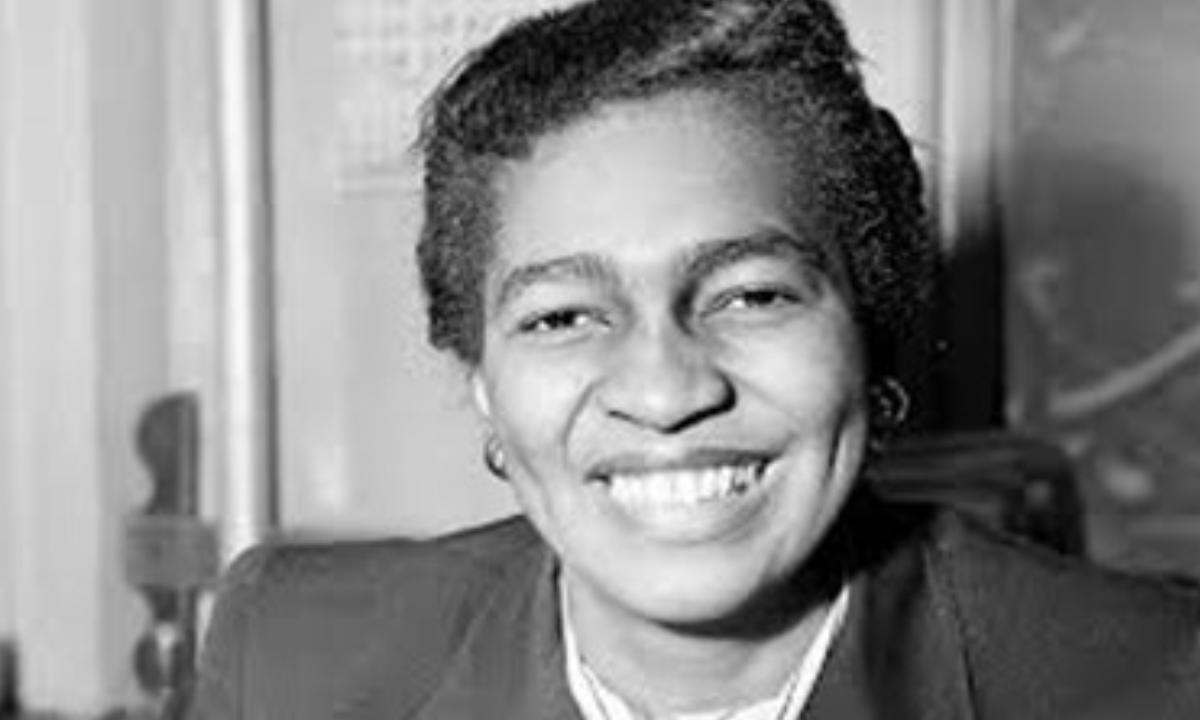As we celebrate Black History Month and this year’s theme “Saluting our Sisters”, it’s important for us here at Pardna to showcase the remarkable women who have played pivotal roles in the fight for civil rights, social justice, and equality that we strive for today.
This week, we celebrate the brilliant and courageous Claudia Jones.
Claudia Jones was a world-renowned journalist, activist, and creator of Notting Hill Carnival, Europe’s biggest street carnival and celebration of Caribbean culture.
She is a shining example of courage, resilience, and determination in the face of adversity. Her life’s work left an unforgettable mark on the struggle for racial and gender equality, making her a notable figure in the journal of Black History.
Early Life
Born Claudia Vera Cumberbatch on February 15, 1915, in the then-British colony of Trinidad, Claudia and her family faced the challenges of growing up in an era marked by colonialism, racism, and economic inequality.
At the age of eight, Claudia Jones and her family immigrated to the United States from Trinidad in pursuit of better opportunities.
Settling in Harlem, New York, she experienced firsthand the racial segregation and socioeconomic disparities of the era before the civil rights movement. Her experiences in New York profoundly influenced her worldview and her dedication to social justice.
Whilst growing up in New York, Claudia developed a keen interest in creative writing and began writing for a local journal in Harlem with her column, Claudia Comments.
Career as a Journalist
Claudia Jones began her career as a writer and journalist, using her powerful words to shed light on the struggles of marginalized communities. She had very strong opinions and after noticing the Scottsboro Boys’ case, decided to join the Communist Party USA and wrote articles for the Communist, a newspaper aimed at addressing issues of inequality, discrimination, and labor rights.
One of her most significant contributions was the founding of the The Negro Affairs section in the Daily Worker newspaper. Through this platform, she highlighted the unique challenges faced by Black Americans, advocating for civil rights, workers’ rights, and an end to racial segregation.
Activism and Civil Rights Work
Claudia Jones was not content with just reporting on issues; she was an active participant in the fight for civil rights. She strongly advocated for gender equality within the civil rights movement, emphasizing that the struggle for racial equality should also include the fight against sexism. Her activism extended to issues such as affordable housing, education, and healthcare, all of which disproportionately affected Black communities.
After living and working in the United States, Jones was exiled to the UK in 1955 as a result of her membership of the Communist Party USA.
She found herself in London, where she continued her activism and journalism and took the fight for equality to a global scale.
Life in Britain and Notting Hill Carnival

Shortly after settling in London, Claudia founded the West Indian Gazette (WIG), a newspaper that campaigned for equality and emphasized the struggles that Black people faced in Britain in the 1950s and 60s.
This was Britain’s first commercial Black newspaper. The WIG aimed to unite the Windrush generation and Caribbean diaspora and to encourage dialogue with other Black freedom movements around the world.
The paper also featured news on racial prejudice and harassment and became somewhat of a safe space for Black people in Britain to share their experiences.
After the Notting Hill riots and Nottingham Disturbance of 1958, Claudia felt a strong need to “wash the taste of Notting Hill and Nottingham out of our mouths” and create something positive for the Black community so she and a group of others came up with an idea to create a Caribbean Carnival in London.
The Caribbean Carnival had its first event in St. Pancras Town Hall in 1959 and only a few years later, ripened into the streets of Notting Hill and became the famous Notting Hill Carnival—a celebration of Caribbean culture that is now the largest street carnival in all of Europe and one of the biggest processions in the world with over 2 million people attending each year on August Bank Holiday.
Legacy

Claudia Jones’s legacy is one of unwavering commitment to social justice, equality, and the empowerment of not only the Black community but marginalized communities all around the world.
Her contributions to journalism and activism laid the foundation for future generations of Black activists and writers. Her tireless efforts to bridge the gap between the civil rights and labor movements, as well as her advocacy for intersectional feminism, have left an indelible mark on the fight for justice.
The Notting Hill Carnival remains larger than ever as it celebrates the culture of Caribbean people and will forever be known as a blossom that grew in the depth of chaos– much like its pioneering founder.
Claudia Jones’s life and work exemplify the spirit of resilience and determination that characterizes Black history. As we celebrate Black History Month, we must remember the remarkable contributions of individuals like Claudia Jones, who dedicated their lives to the pursuit of justice and equality. Her legacy inspires and guides us in the ongoing struggle for a more just and equitable world.
